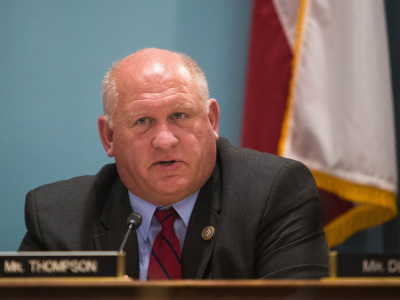Lawmakers are laying the groundwork to recharge the Rural Energy for America Program, a USDA initiative to bankroll clean and renewable energy from rural areas and farms.
The REAP Improvement Act, a bill introduced by Sen. Tina Smith, D-Minn., Rep. Abigail Spanberger, D-Va., and Rep. David Valadao, R-Calif., would inject billions into the program and open the door for rural cooperatives to get federal funding for projects like solar panel installation, wind farms and anaerobic digesters. It also would double cost-sharing percentages for clean energy projects, making projects more affordable, and add provisions to consider the climate benefits of proposed REAP initiatives.
The proposal has caught the attention of the dairy industry, which supports increased use of manure-to-methane digesters. At this point, the bill's eligibility expansion likely will be discussed as part of the 2023 farm bill negotiations, but Congress may add more money to the program before then.
Since being established in 2008, REAP has contributed more than $2.6 billion to clean energy projects. It has steadily grown its portfolio, with 2021’s REAP investment total eclipsing any single-year record for the program at nearly $570 million.
According to USDA, the vast majority of REAP’s contributions have come in the form of loan guarantees. More than $2.1 billion of REAP’s total spending, or 81% of the program’s total expenditures, has been in the form of those guarantees.
Since REAP's establishment, outright grants account for more than $354 million and grant/loan combinations total nearly $153 million.
The new bill would inject massive funding for grants into the program, adding $1 billion to clear an existing backlog of projects and doubling the cost-share percentage for grants from 25% to 50%.
Spanberger told Agri-Pulse the program needs more funds to reduce the backlog, as well as more flexibility on grant awards.
“This bill is seeking to make the REAP program more usable,” Spanberger said. The program "is incredibly popular, but it is totally oversubscribed and underfunded.”
Spanberger said the co-op and cost-sharing provisions are critical to making the program more accessible. She added that allowing co-ops to receive funding could help smaller farms invest in expensive assets like anaerobic digesters.
“Depending on the size of your farm, that is a heck of an investment for a single farm to make,” Spanberger said. “Now, if a group of neighbors or a group of dairies wish to join together, allowing the eligibility of a cooperative effort to apply together for grant dollars for a biodigester, for example, is an important change. It allows for smaller farmers to be able to invest in more expensive technologies."
The idea of co-ops bankrolling expensive agriculture tech like digesters has supporters on both sides of the aisle. House Ag Committee Ranking Member Glenn "GT" Thompson, R-Penn., spoke about it last week at a farm bill hearing.
 House Ag Ranking Member Glenn "GT" Thompson, R-Penn.“They work really well where you have larger farms that have the herd size to provide that feedstock. It’s a wonderful technology, actually,” Thompson said. “But it seems to me this also works if you have a central digester someplace, whether it’s with a company providing it or a cooperative." In Pennsylvania, he said, dozens of farms could then take part.
House Ag Ranking Member Glenn "GT" Thompson, R-Penn.“They work really well where you have larger farms that have the herd size to provide that feedstock. It’s a wonderful technology, actually,” Thompson said. “But it seems to me this also works if you have a central digester someplace, whether it’s with a company providing it or a cooperative." In Pennsylvania, he said, dozens of farms could then take part.The National Milk Producers Federation, which represents dairy producers and the cooperatives they own, is a supporter of the bill.
Paul Bleiberg, NMPF senior vice president for government relations, told Agri-Pulse in a statement that NMPF is backing the REAP Improvement Act "because it includes several beneficial provisions to facilitate expanded use of digesters, including making farmer cooperatives eligible for the program, increasing authorized program funding levels, and creating a reserve fund for underserved technologies."
“Greater use of digesters will help position the dairy sector to fulfill its environmental stewardship goals, which include becoming greenhouse gas neutral or better by 2050,” Bleiberg said.
However, not all supporters of the bill are backing digesters.
Looking for the best, most comprehensive and balanced news source in agriculture? Our Agri-Pulse editors don't miss a beat! Sign up for a free month-long subscription.
Cathy Day, climate policy director at the National Sustainable Agriculture Coalition, a supporter of the bill, said NSAC is not fully on board with more digesters.
“That’s definitely a piece we’re significantly less excited about,” Day said. “A digester can be a positive in terms of climate outcomes, [but] if we’re talking about starting from a system where we have some potential to transition to dry manure management, or even better, we can encourage people toward … managed rotational grazing for their management instead and getting all of that manure back into the pastures on the ground and incorporated into the soil over time … that’s definitely preferable in our minds to having a bunch of digesters.”
Day said digesters are “an advantage only over the massive methane outputs of the big liquid manure management systems,” and that the systems are “still releasing all the carbon from the system and still supporting an overall livestock system that holistically speaking is less effective in terms of climate, in terms of water pollution, in terms of air pollution.”
“In the long term, it’s not a climate win, it’s only sort of a slight improvement over that liquid system,” Day said of digesters, but added, “much of the rest of [the bill] we strongly support.”
REAP has carried out 132 digester projects, totaling $230 million, or around $1.74 million per project. By contrast, REAP has helped fund about 4,200 solar projects totaling $2 billion, for an average of about $487,000 per project.
Still, the bill has strong support in Congress.
House Ag Committee Chair David Scott of Georgia said in a statement to Agri-Pulse the bill merits “close consideration.”
 Ag Committee Chair David Scott, D-Ga.Smith, the Senate's lead sponsor, called
Ag Committee Chair David Scott, D-Ga.Smith, the Senate's lead sponsor, called REAP "a wildly popular and successful program that has helped many farmers and rural business owners to save money through energy efficiency and the production of renewable energy.” In a statement to Agri-Pulse, she said, “What REAP most needs is more funding — that’s why we should pass my REAP Improvement ACT, which would provide the program with more of the resources it needs while making greenhouse gas emission reductions an integral part of the program’s mission.”
A source with knowledge of the bill told Agri-Pulse it would likely be addressed as two separate parts.
The first, the source said, would be the funding component. Lawmakers are seeking to pass additional funding for REAP as part of a future reconciliation measure to fund the government.
The additional pieces of the bill, such as the section allowing rural cooperatives to receive funding, would then be packaged for the 2023 farm bill, the source said.
Spanberger said she'd be supportive of that approach.
"If we could get traction on funding to this program in some sort of vehicle that's moving before the farm bill, in principle I'd be supportive of that," she said. "But the meat and potatoes of the work that I'm doing is doing the background work towards the farm bill."
For more news, go to www.Agri-Pulse.com


